At AffectLog, our vision is shaped not only by technology but also by the insights of leading researchers in education, psychology, neuroscience, policy, and AI ethics. Many of these scholars are colleagues and collaborators our founder has had the privilege to work with during his PhD and earlier research roles at UNESCO and other institutes. While they are not (yet) formally affiliated with AffectLog, their ideas, mentorship, and pioneering research continue to inspire our approach to building trustworthy, human-centered AI.
Meet the Humans!

Harri Ketamo – Adjunct Professor, Tampere University; Founder of Headai (Finland)
Cognitive Computing, Data Science & Gaming.
Dr. Harri Ketamo is a seasoned entrepreneur and researcher with over 20 years of experience in cognitive sciences, artificial intelligence, and game development[2]. He is the founder and chairman of Headai, a Finnish cognitive computing start-up that builds AI-driven solutions for skills and education, powering sustainable economic growth[3]. Academically, Ketamo serves as an Adjunct Professor at Tampere University (formerly Tampere University of Technology) and a Senior Fellow at the University of Turku[4]. He previously founded companies in game-based learning and adaptive learning (SkillPixels and gameMiner), publishing 80+ research papers at the intersection of AI and education[5]. His blend of #CognitiveComputing and #Gaming expertise helps AffectLog leverage AI for learning and data-driven insights.

Sarah Goodday – Senior Research Scientist, University of Oxford
#MentalHealth | #Epidemiology | #DigitalHealth
Dr. Sarah Goodday is a senior research scientist at the University of Oxford whose work bridges mental health epidemiology, youth wellbeing, and digital health. With training in psychiatric epidemiology and public health, she studies how social, biological, and digital determinants influence trajectories of mental health across the lifespan. Her research integrates longitudinal cohort studies with innovative digital phenotyping, capturing signals from wearable devices, apps, and online behaviour to provide real-time insights into psychological wellbeing.
At Oxford, she has contributed to projects on early detection of depression and anxiety among young people, developing scalable interventions that can be deployed in schools, workplaces, and community settings. Her work highlights both the potential of AI to personalise mental health support and the ethical safeguards required when handling highly sensitive health data. Goodday has also published extensively on suicide prevention, adolescent resilience, and the mental health impacts of digital technologies. Through this research, she emphasises the importance of fairness, transparency, and responsible governance when deploying digital and AI tools in clinical or youth contexts.
Her expertise in #MentalHealth, #Epidemiology, and #DigitalHealth informs AffectLog’s vision of AI that is both innovative and protective of vulnerable populations.
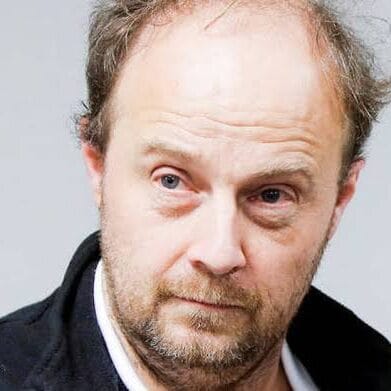
François Taddei – Co-founder, Learning Planet Institute (Paris)
Education Innovation & Advocacy.
Dr. François Taddei is co-founder and president of the Learning Planet Institute in Paris, an internationally recognised researcher in evolutionary systems biology who transitioned into the learning sciences[1]. As a visionary “dreamer” in education, he has dedicated his career to reimagining how we learn, advocating for collective intelligence and youth co-creation in education[1]. Taddei has spearheaded interdisciplinary programs to reinvent education for a sustainable future, working with global bodies like UNESCO and the UN to empower learners to “be the change they want to see in the world”[1]. His work exemplifies #EducationInnovation and #Advocacy, inspiring new models of learning that emphasise creativity, collaboration, and planetary stewardship.
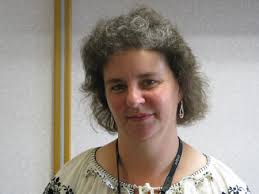
Rachel Hilliam – Professor of Statistics, Open University (UK)
Mathematics & Medical Statistics.
Professor Rachel Hilliam heads the School of Mathematics & Statistics at The Open University, bringing deep experience in both academic teaching and applied medical research[6]. Before joining OU in 2011, she worked as a medical statistician in the UK National Health Service, contributing to clinical trials and health studies[7]. Hilliam is passionate about improving statistics education—she has led curriculum innovation and support for statistics teaching and was Vice-President of the Royal Statistical Society (2021–2023)[8]. Her research spans pedagogy and medical statistics, including developing better tools for patient quality-of-life measurement (such as the LYMQOL instrument) and using machine learning to enhance medical diagnostics[9]. In 2024, she was awarded the RSS Chambers Medal for her contributions to data science[10], underscoring her standing as a leader in data-informed decision-making in education and health.

Andrey Kormilitzin – Research Scientist, University of Oxford
#ExplainableAI | #Neuroinformatics | #HealthcareAI
Dr. Andrey Kormilitzin is a machine learning researcher at the University of Oxford, specialising in interpretable artificial intelligence, medical applications of AI, and neuroinformatics. With a background in computer science and neuroscience, he develops models that are both powerful and transparent, enabling clinicians to understand and trust AI-driven decisions.
His work at Oxford has included projects on explainable AI for mental health, where algorithms are designed to support clinicians in diagnosing and monitoring psychiatric disorders while providing clear explanations of their outputs. He has also contributed to clinical decision support systems in healthcare, building models that integrate multimodal data—such as clinical notes, neuroimaging, and genetic information—while ensuring patient privacy through federated and privacy-preserving learning methods.
Kormilitzin’s research draws attention to the risks of “black-box” AI in medicine and provides technical solutions to make models auditable, bias-aware, and ethically deployable. His contributions to #ExplainableAI, #Neuroinformatics, and #HealthcareAI align closely with AffectLog’s mission to advance AI that is trustworthy, interpretable, and compliant with regulatory and ethical frameworks.

Elaine Walsh – Associate Professor of Nursing, University of Washington (USA)
Pediatric Psychiatry & Suicide Prevention.
Dr. Elaine Walsh is a clinical specialist in child and adolescent psychiatric nursing whose research focuses on youth mental health. As a faculty member at UW Seattle, she investigates suicide prevention strategies and co-occurring risk behaviors among young people[11]. Walsh has decades of experience translating research into community interventions – developing programs that address not only suicide risk, but also related behaviors like substance use or violence that often occur together[11]. She has provided mental health crisis assessment and training in schools, hospitals, and community settings[12]. An active contributor to national prevention initiatives, Dr. Walsh helps AffectLog integrate evidence-based approaches to suicide prevention and holistic mental health promotion (#SuicidePrevention, #RiskBehavior) in our projects.
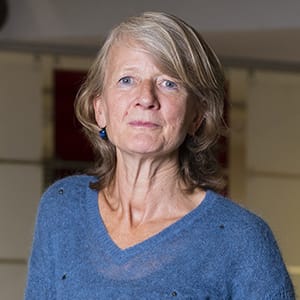
Catherine Pelachaud – CNRS Research Director at ISIR, Sorbonne Université (France)
Embodied Conversational Agents & Social Signal Processing.
Dr. Catherine Pelachaud is a leading figure in affective computing and human–agent interaction. A Director of Research at the Institute for Intelligent Systems and Robotics (ISIR) in Paris, she has spent decades modeling socially interactive virtual agents, with an emphasis on nonverbal communication and expressive behavior[13]. Pelachaud’s work on embodied conversational agents enables computers to engage in realistic face-to-face dialogue, using facial expressions, gestures, and tone to convey emotion and social cues. She has authored over 200 scientific publications on these topics[13], co-editing seminal books on virtual agents and emotion-oriented systems. Her innovations in #HumanAgentInteraction and #NonverbalBehavior have earned multiple best-paper awards and even a prestigious ACM/SIGAI Autonomous Agents Research Award[14].

Grégoire Borst – Professor of Developmental Psychology, Université Paris Cité (France)
Cognitive Development & Educational Neuroscience.
Prof. Grégoire Borst is a leading psychologist and cognitive neuroscientist of education. He serves as full Professor at University of Paris and is Director of the Laboratory for the Psychology of Child Development and Education (LaPsyDÉ, a CNRS unit at Sorbonne)[15]. Borst’s research explores how children’s cognitive and emotional control mechanisms develop, and how these affect learning and socio-emotional growth[16]. He is especially interested in the brain’s “executive functions” (like inhibition and flexibility) and how they impact problem-solving in school and everyday life. Author of over 70 scientific articles and several books, Borst also engages in science outreach—writing children’s books that explain how the brain works[17]. He collaborates closely with educators and even advises UNESCO’s education initiatives[18].
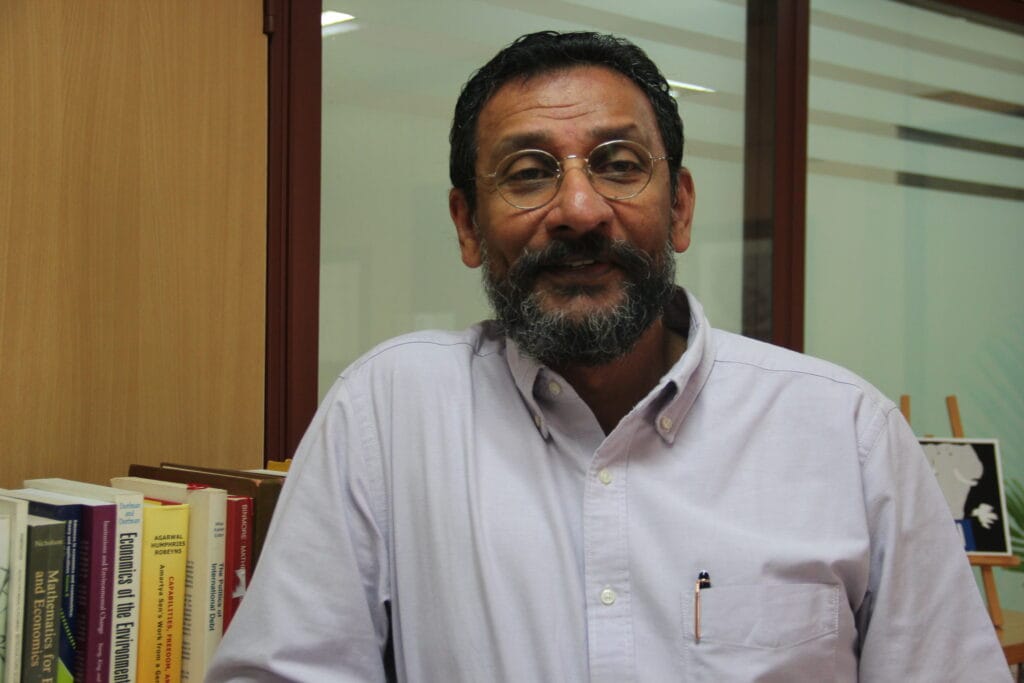
Anantha Duraiappah – Former Director, UNESCO MGIEP; Fellow of WAAS & TWAS
Policy, Social-Emotional Learning & Systems Thinking.
Dr. Anantha Duraiappah is a renowned economist and science-policy leader with over 30 years of experience bridging research and policy on sustainable development and education[22]. He was the inaugural Director of UNESCO’s Mahatma Gandhi Institute of Education for Peace and Sustainable Development (MGIEP) from 2014 to 2023, where he championed Social and Emotional Learning (SEL) as key to 21st-century education[23]. Duraiappah spearheaded the development of the “EMC²” framework (focusing on Empathy, Mindfulness, Compassion, Critical Inquiry) to foster SEL competencies in learners[23]. A fellow of The World Academy of Sciences (TWAS) and the World Academy of Art & Science, he has previously held senior roles at the United Nations University and UN Environment Programme[24]. He brings a #Policymaker’s perspective to AffectLog, ensuring our initiatives align with global goals and systems thinking. His guidance on SEL and ethical AI helps us design solutions that not only leverage technology but also cultivate emotional intelligence and well-being.

Arnaud Cachia – Professor of Cognitive Neuroscience, Université Paris Cité; IUF Fellow
Neurodevelopment & Pathologies.
Dr. Arnaud Cachia is a cognitive neuroscientist focused on how the brain develops from early life through adolescence. A professor at Université Paris Cité and junior fellow of the Institut Universitaire de France, he serves as Deputy Director of the LaPsyDÉ lab in Paris[25]. Cachia’s research aims to decipher the neurodevelopmental bases of cognition, examining how early factors (like fetal brain growth and genetics) interact with later neuroplasticity mechanisms in childhood and teen years[26]. He studies both typical cognitive development (e.g. learning processes) and atypical or pathological trajectories (such as in psychiatric disorders)[26]. Using an integrative “gene–brain–behavior” approach, Cachia has shed light on phenomena like how stress or brain anatomy variations relate to learning and mental health[26]. His expertise in developmental neuroscience (#CognitiveNeuroscience) informs our approach to personalized and brain-friendly learning strategies, as well as understanding risk factors in youth development (#PathologicalDevelopment).

Eila Lindfors – Professor of Teacher Education, University of Turku (Finland)
Teacher Training & Innovation in Learning.
Professor Eila Lindfors specializes in how we educate the educators – fostering innovation skills in teachers and students alike. At the University of Turku’s Teacher Education department, she focuses on technology education, safe learning environments, and 21st-century skills development[27]. Lindfors’ research and expertise span STEAM (Science, Technology, Engineering, Arts, Mathematics) education and “innovation pedagogy,” equipping learners with creativity and problem-solving competencies for the future[27]. She has coordinated multiple international projects in Europe and Asia to advance curriculum innovation and school safety, and has recently been consulting on national STEM curriculum reforms in Sri Lanka[28]. From promoting safety culture in schools to enhancing teachers’ design thinking skills, her work exemplifies #TeachingInnovation.
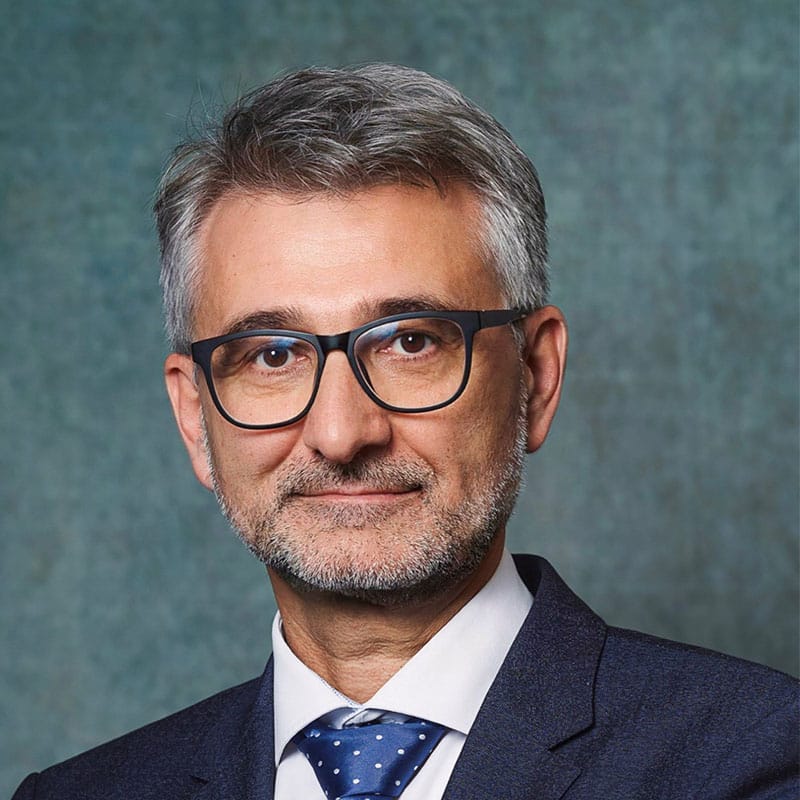
Vladimír Šucha – EU Policy Advisor; Former Head of European Commission Representation (Slovakia)
Evidence-Informed Policy, Innovation Ecosystems & AI Impact.
Prof. Vladimír Šucha has over three decades of experience at the nexus of scientific research and policymaking[29]. His career highlights include serving as Director-General of the European Commission’s Joint Research Centre (2012–2019) and, most recently, as Head of the European Commission’s Representation in Slovakia (until 2024)[30]. Šucha’s expertise spans multiple sectors, always emphasizing the use of robust evidence to inform policy decisions and drive innovation[29]. He has advised on European education and culture policies and contributed to international guidelines on AI ethics. Academically, he is a Professor (Doctor of Science) who has authored over 100 peer-reviewed publications, including co-authoring “Science for Policy Handbook” and “Humans and Societies in the Age of Artificial Intelligence.”[31] Through his guidance, AffectLog benefits from a high-level view on building innovation ecosystems and understanding the societal impacts of AI (#AIandSociety). Prof. Šucha’s blend of leadership and insight helps ensure our projects are both innovative and responsible, bridging the gap between cutting-edge research and practical policy implementation.
Sources
The profiles above were synthesized from publicly available information and publications for each advisor[1][3][4][7][9][11][13][15][19][21][22][23][26][27][29]. Each member of the Scientific Advisory Group brings a wealth of knowledge to AffectLog’s endeavors, ensuring our work remains at the forefront of research and aligned with global best practices in their respective fields.
[1] Stewards of Tomorrow: Rethinking Higher Education for a Planetary Future | United Nations University
[2] [3] Harri Ketamo
[6] [7] [8] [9] [10] OUPPS (Open University People Profile System)
[11] [12] Elaine Walsh – she,her
[13] [14] VISIGRAPP 2020 – EventChairs
[15] [16] [17] [18] Grégoire Borst | Sciences Po Laboratory for Interdisciplinary Evaluation of Public Policies
[19] [20] [21] Stuart McNaughton (2014 Inductee) | Reading Hall of Fame
[22] [23] [24] Anantha Duraiappah – Wikipedia
[27] [28] Eila LINDFORS | Professor (Full) | PhD | University of Turku, Turku | UTU | Department of Teacher Education | Research profile
[29] [30] [31] Vladimír Šucha — Centre for a Digital Society

